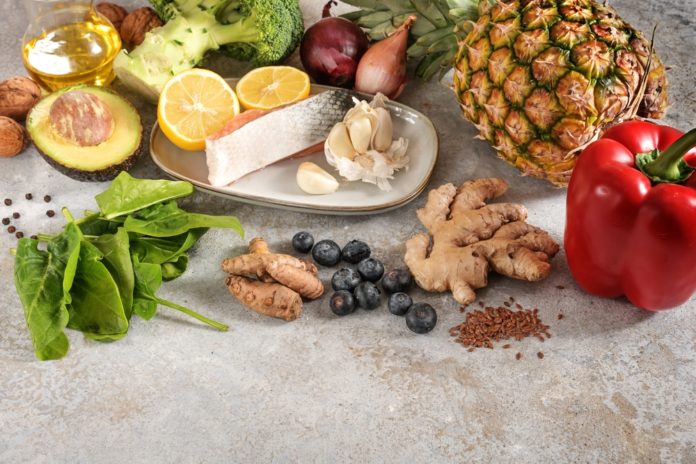Inflammation can be a factor in many diseases. Everything from a cold to cancer is an example of this. Inflammation may cause swelling, reddening, pain, fatigue and difficulties using your body.
Inflammation may be caused by a physical injury, such as a fractured bone, or a disease that is internal such as strep. By taking steps to reduce inflammation, your cells will be able to function normally and the inflammation symptoms may also improve.
Vitamin A
Vitamin A is essential for a healthy immune and vision system, as well as for pain relief and muscle and joint health. It can reduce the levels of MCP-1, an inflammatory mediator. Vitamin A is naturally present in sweet potato, carrots and red pepper. You can choose to take a vitamin A supplement if you do not get enough from your diet.
Vitamin E
Vitamin E is an important vitamin, which your body cannot produce on its own. You must therefore consciously eat foods that are rich in Vitamin E in order to prevent a deficiency. This vitamin lowers the levels of cytokines in your body, which are inflammatory mediators. Nuts, sunflower seeds and fruits (kiwi and mango), vegetable oil and vegetables (spinach and broccoli) are all rich in Vitamin E. If you are not getting enough vitamin E in your diet, you can take a Vitamin E supplement.
B Vitamins
B vitamins play a key role in reducing inflammation. Vitamin B6 is particularly important in reducing inflammation-causing compounds. Low levels of vitamin B6 are associated with higher levels of C-reactive protein, which is a major factor in inflammation.
Kale, tuna, peppers, mushrooms and poultry are all high-vitamin B6 foods. There are supplements available.
Vitamin C
Vitamin C is known for its immune-boosting properties, but it also regulates inflammation. Vitamin C has been shown to help eliminate free radicals that may cause inflammation. Vitamin C and Vitamin B6 have also been shown reduce C-reactive proteins.
Citrus fruits and vegetables are rich in vitamin C. Orange juice is a good source of Vitamin C.
Vitamin K
Vitamin K inhibits the inflammation agents produced by white blood cells. Vitamin K is also important for maintaining heart and bone health. Spinach, turnip, broccoli, parsley and romaine lettuce are all sources of vitamin K. If you are not getting enough vitamin K in your diet, there are supplements that can be taken.
Conclusion
Certain vitamins are essential in the reduction of inflammation. Inflammation affects our health in many ways. You can reduce inflammation by eating the right nutrients.

